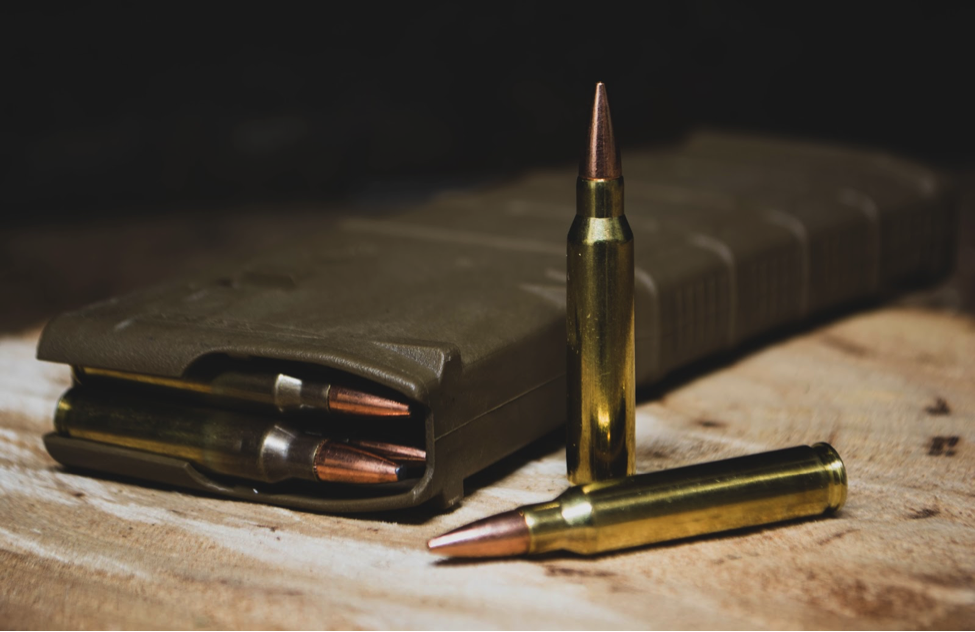Gun Control: Pros and Cons
2019.10.11

Gun shooting is unique in the pros and cons it gives. The exhilarating feeling when shooting a gun is unlike any other. The adrenaline rush that happens inside the body and mind is far beyond what any nonpracticing shooter can imagine. To know what it’s like, you’ll have to see and shoot for yourself.
Shooting can change your perspective in a lot of ways. It takes training and discipline to do it right. Aiming and focusing on a target will improve over time, especially when done often enough.
A lot of shooters find immense relief after firing a couple of rounds, but some beg to disagree. There are downsides and upsides to firearms. Not everybody is comfortable going out or staying at home without some kind of protection. And not everybody is comfortable with everybody else owning and carrying a gun.
Policymakers continue to find ways to ensure that both gun owners and non–gun owners are protected by reasonable gun-control measures. Every state differs in terms of gun regulation. There is a thin line between restrictive and tolerable measures that are in line with the laws of the land.
Here are a few pros and cons of buying, carrying, and owning a firearm. These will help you determine whether guns are sufficiently regulated enough or need more control.
Federal State Gun Control Policy
Legislation for gun control has not had much movement over the years. It’s not easy to argue against a 228-year-old constitutional right. Because of the Second Amendment of the Constitution, most lawmakers have a hard time getting gun regulations passed in Congress.
The Gun Control Act of 1968, a law signed by President Lyndon Johnson five decades ago, is one of the few gun-related provisions successfully put into writing. It regulates the shipment of certain types of guns from one state to another. A few years later, it had been amended by the Brady Handgun Violence Prevention Act of 1993. This act requires a waiting period and background checks before a firearm can be purchased.
Apart from these laws, there have been several gun-control measures initiated mostly by Democrats, but very few of these ever get to the next reading. Each state varies in its treatment of handguns and rifles for residents.
State-Level Gun Controls and Exceptions
Buying and owning a gun is something Americans have been allowed to do for a very long time. Compared to other countries, gun control in the US is not as strict as that in European countries or anywhere else in the world.
The right to own a gun is written and protected by the Constitution. Out of the fifty states in the country, only eight states require registration and permits to purchase firearms:
1. California
2. Connecticut
3. New York
4. New Jersey
5. Maryland
6. Washington
7. Michigan
8. Hawaii
These states have varying levels of background checks and seminars that a gun buyer should comply with before getting a permit to purchase. There are states where you can buy a gun without having to process a license or permit or register the gun itself after purchase.
To name a few, Alabama, Alaska, Arkansas, Colorado, Delaware, Florida, Georgia, Idaho, Indiana, Kansas, and 26 more Southern states are some of the easiest places to purchase a firearm. Most of them do not have any prerequisites when buying a gun. For as long as you are an 18-year-old person, you have the right to bear arms.
Buying from Private Sellers
As for private gun sales, these states require a background check:
1. California
2. Colorado
3. Connecticut
4. Delaware
5. District of Columbia
6. Hawaii
7. Illinois
8. Iowa
9. Massachusetts
10. Michigan
11. Maryland
12. New Jersey
13. Nebraska
14. North Carolina
15. Oregon
16. Pennsylvania
17. Rhode Island
18. Washington
Background checks by private sellers and licensed dealers usually go through the records of the National Instant Criminal Background Check System (NICS).
No matter which state you may be in, some specific individuals can’t own a firearm. If you’ve been convicted of a crime or have been found to have a mental illness, then you won’t have the same right to bear arms as the rest do. If you’re not a US citizen, then you won’t be able to own a gun legally.
Prevailing Effects of Gun Control
States that practice less-restrictive gun-control measures are the same states that have been reported to have mass-shooting incidents. It’s one of the many cons of having easy access to guns—the propensity for gun-related cases and violence.
The effects of gun ownership have been an ongoing discussion among communities and lawmakers for quite some time. However, different studies state that it’s not accessibility to guns that’s causing the problems.
But gun owners will argue that gun-safety practices of each individual carry more weight than the gun controls already set in place do. Civilians who own handguns or long guns, like the popular AR-15, are encouraged to keep their guns, accessories, and storage secure and out of reach from children or untrained shooters.
Trained gun owners mostly have gun safety drilled in their heads. Shooting is, after all, primarily a mental exercise. The responsibility that comes with handling a dangerous weapon should be yours alone. Most gun owners understand this, but not everyone agrees with it.
Different sports come with various advantages and disadvantages. Gun shooting is no different. It has the effect of improving your posture, stamina, muscle strength, as well as the mental effects. It’s a small wonder why not more people are getting into the sport of shooting.
More Articles
Copyright © Fooyoh.com All rights reserved.